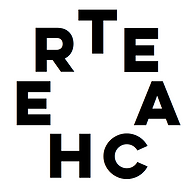Laura Joy Pieters is a performer/actor and visual artist from Whitstable, Kent. Her art practice is concerned with ideas of Afrofuturism and utopia, humankind’s collective relationship with the earth and space, and blurring the lines between science and science fiction.
She holds an MSci in Chemistry from UCL, and was part of the inaugural group of Young Leaders at Science Gallery London where she developed a short film ('Dark Matter') based on her relationship with science. Within the programme she worked on several other creative collaborations including the interactive art piece ‘Common Thread’, designed with Resolve Collective and exhibited during the 'On Edge' season.
Episode 1 - Trickster - ‘What can the history of populism tell us about ourselves?’ explores the history of populism, and what those trends throughout history tell us about our current political landscape. And also, what it might mean for the future.
Episode 2 - Teacher - The Earthseed religion in the 'Parable' books isn't wanting to travel to space for nihilistic purposes, but it's saying that it's the only way forward. Perhaps there is just an innate human desire to explore, to go out there. And it's important to learn from atrocities that happened in the past, and to think about speculative visions of the future. So perhaps the notion of human settlement in space, isn't really a question of if, it's not even really a question of when, but rather a more important question of how.
Episode 3 - Chaos - Can science alter our perspective on change and time? People often talk of things coming full circle - that life is a circle. Not just in the Lion King - cycles of birth, life, death, predation, these are all-natural processes, and life gives rise to new life through death. People also speak of the wheel of time, something that’s ever-turning. Like tides, caused by tidal attraction between the earth and moon, perpetually turning. We can see lots of things in our own lives as a circle, plants turning to food turning to fertiliser, but what about the earth itself? What about the stars? These things that existed so long before life came along, and that could long outlive us all? Are their arcs so big that we can’t see them turning, the same way the earth is so big that we cannot feel it moving? We know that there is change throughout the universe, but there is so much that we don’t know. Could time ever stop? If it did, could it ever start again?
Episode 4 - Clay - Can we reconcile the needs for individuality and community in a society?
What does our future hold? What will be the continuation orculmination of a pretty extraordinary voyage that began on the savannah more than a hundred thousand years ago?
Some people say that humanity is setting itself on a course whereby we’ll wipe ourselves out. Through climate change, through war, through overpopulation or any number of disastrous scenarios. Or perhaps we won’t, perhaps togetherwe will continue putting one foot in front of the other, walking forwards, haltingly, sometimes leaping, sometimes stopping, but always walking, to achieve our dreams, and our very grandest hopes.




